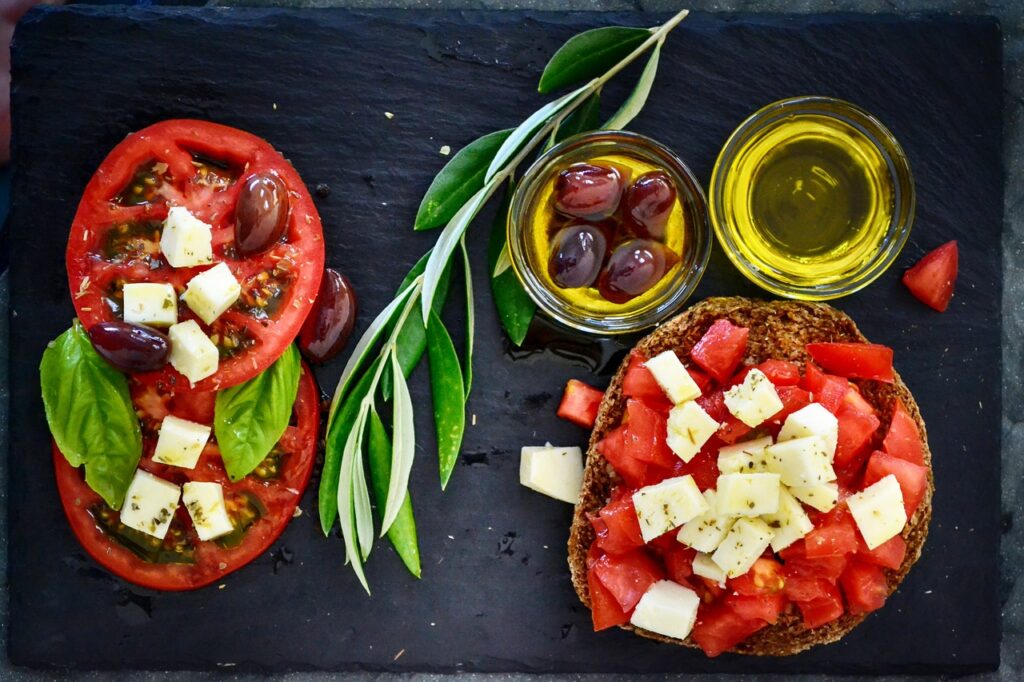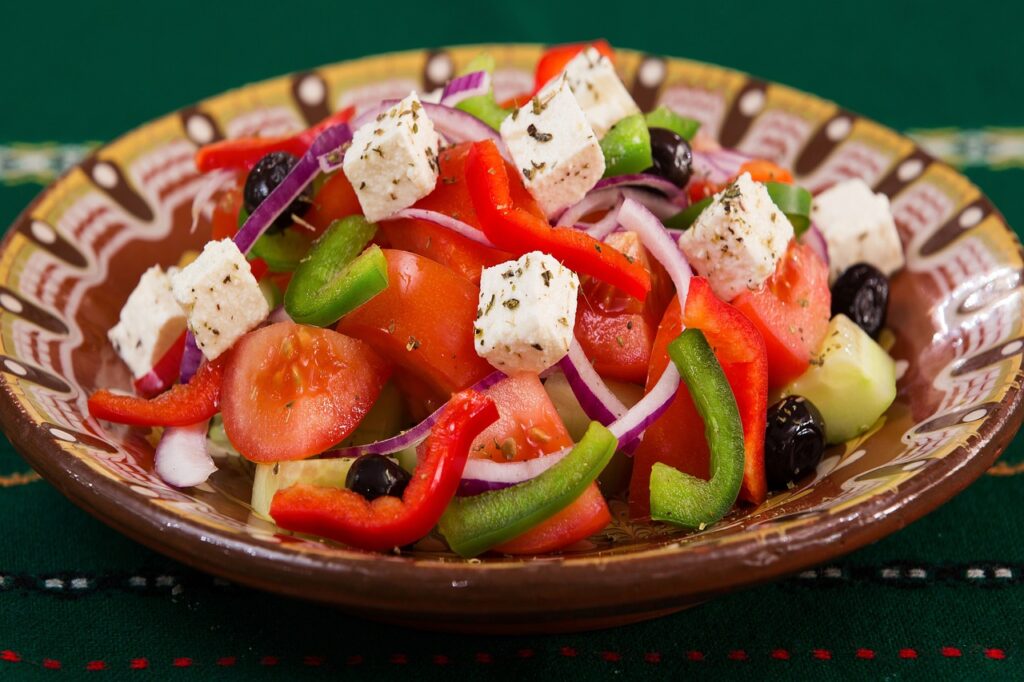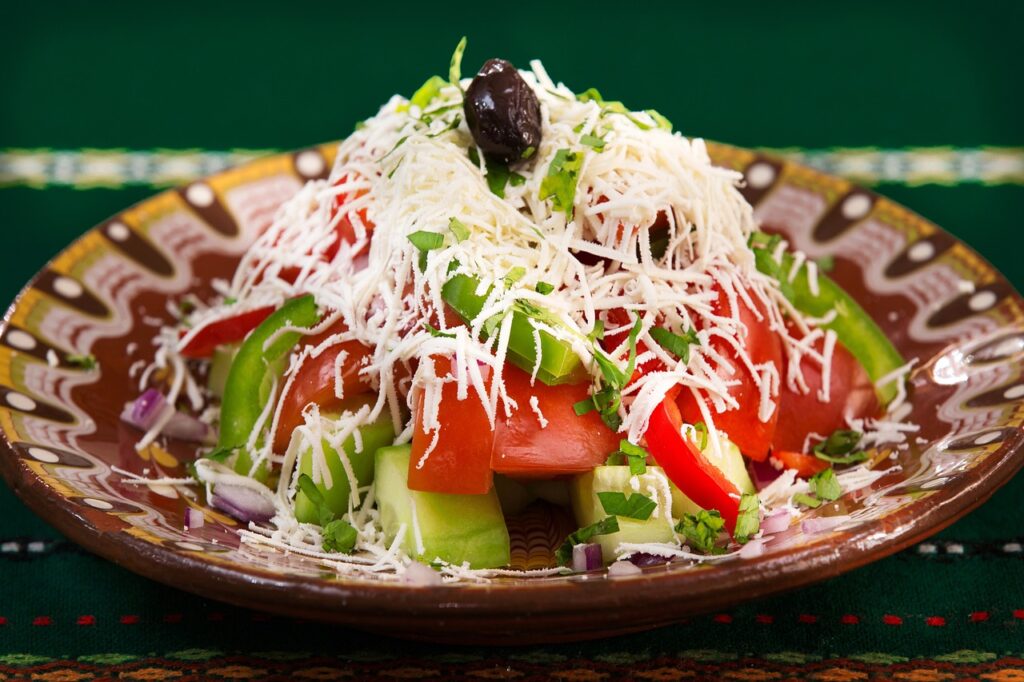
What is a Mediterranean diet?
The Mediterranean diet for fatty liver draws inspiration from the traditional eating habits of countries surrounding the Mediterranean Sea, such as Greece, Italy, and Spain. Characterized by a high intake of plant-based foods like fruits, vegetables, whole grains, legumes, and nuts.Olive oil is the main fat source in this diet, with moderate consumption of fish, poultry, and dairy. Limit red meat and processed food. The Mediterranean diet is not only delicious but also known for its numerous health benefits.
Understanding Fatty Liver Disease
Before we delve into the benefits of the Mediterranean diet for fatty liver, let’s first understand what fatty liver disease is. Fatty liver disease, also known as hepatic steatosis, is a condition characterized by the accumulation of fat in the liver cells. This buildup of fat can lead to inflammation and scarring of the liver, which can impair its function over time. Fatty liver disease can be caused by various factors, including obesity, insulin resistance, high cholesterol, and excessive alcohol consumption. If left untreated, it can progress to more severe conditions, such as non-alcoholic steatohepatitis (NASH) and cirrhosis.
The Link Between Diet and Fatty Liver Disease
Emerging research has shown that diet plays a crucial role in the development and progression of fatty liver disease. A diet high in saturated fats, trans fats, and refined carbohydrates has been associated with an increased risk of developing fatty liver disease. On the other hand, a diet rich in fruits, vegetables, whole grains, and healthy fats has been shown to have a protective effect on liver health. This is where the Mediterranean diet comes into play.
Benefits of The Mediterranean Diet for Fatty Liver

The Mediterranean diet has been widely researched for its effects on liver health. Studies have demonstrated its ability to decrease liver fat accumulation, inflammation, and oxidative stress, which are crucial elements in the advancement of fatty liver disease.The high intake of fruits and vegetables in the Mediterranean diet provides a rich source of antioxidants and anti-inflammatory compounds, which help protect the liver from damage. Moreover, the advantageous fats found in olive oil, nuts, and fatty fish have been shown to improve liver function and reduce liver enzyme levels.
Top Mediterranean Diet Foods for Healthy Liver
When following a Mediterranean diet for fatty liver, it’s important to include a variety of nutrient-dense foods. Here are some key foods to include:
Fruits and vegetables: Strive for a vibrant variety of fruits and vegetables, as they are rich in vitamins, minerals, and antioxidants that promote liver health. Berries, leafy greens, cruciferous vegetables, and citrus fruits are particularly beneficial.
Whole grains: Opt for whole grains such as quinoa, brown rice, whole wheat bread, and whole grain pasta. These complex carbohydrates provide sustained energy and fiber, which aid in digestion and promote a healthy weight.
Healthy fats: Olive oil, avocados, nuts, and seeds are key components of the Mediterranean diet. These healthy fats are rich in monounsaturated and polyunsaturated fats, known to decrease liver fat and inflammation..
Lean proteins: Choose lean sources of protein, such as fish, poultry, legumes, and tofu. These protein sources are low in saturated fat and provide essential amino acids for liver repair and regeneration.
Dairy: Opt for low-fat dairy products, such as Greek yogurt and skim milk, which are rich in calcium and protein. However, if you have lactose intolerance or prefer plant-based options, there are plenty of non-dairy alternatives available.
Foods to avoid in a Mediterranean diet for fatty liver
While the Mediterranean diet emphasizes healthy food choices, there are still some foods that should be limited or avoided when managing fatty liver disease. These include:
Red meat: Limit your intake of red meat, as it is high in saturated fats that can contribute to liver inflammation and fat accumulation.
Processed foods: Avoid processed foods, such as fast food, packaged snacks, and sugary beverages. These foods are often high in unhealthy fats, added sugars, and sodium, which can exacerbate liver damage.
Refined carbohydrates: Minimize your consumption of refined carbohydrates, such as white bread, white rice, and sugary desserts. These foods can cause spikes in blood sugar levels and contribute to liver fat buildup.
Alcohol: If you have fatty liver disease, it’s crucial to avoid or limit alcohol consumption. Alcohol is a major contributor to liver damage and can worsen the progression of fatty liver disease.
Sample Meal Plan For a Mediterranean Diet for Fatty Liver
To help you get started, here’s a sample meal plan for a day on the Mediterranean diet for fatty liver:
Breakfast: Greek yogurt topped with berries and a sprinkle of nuts
Lunch: Grilled chicken salad with mixed greens, cherry tomatoes, cucumber, olives, and a drizzle of olive oil and lemon juice
Snack: Carrot sticks with hummus
Dinner: Baked salmon with roasted vegetables and a side of quinoa
Dessert: Fresh fruit salad
Tips For Incorporating the Mediterranean Diet Into Your Lifestyle

Transitioning to a Mediterranean diet for fatty liver doesn’t have to be overwhelming. Here are some tips to help you incorporate this eating plan into your lifestyle:
Start small: Begin by making small changes to your current diet. Swap out unhealthy fats for olive oil, incorporate more fruits and vegetables into your meals, and gradually reduce your intake of processed foods.
Experiment with flavors: The Mediterranean diet is famous for its delicious flavors.Try experimenting with different herbs, spices, and seasonings to enhance the taste of your dishes.
Meal prep: Set aside time each week to meal prep and plan your meals in advance. This will help you stay on track and make healthier choices throughout the week.
Stay hydrated: Stay hydrated by drinking plenty of water throughout the day. You can also enjoy herbal teas or infused water for added flavor.
Be mindful: Practice mindful eating by savoring each bite and paying attention to your body’s hunger and fullness cues. This will help you develop a healthier relationship with food.
Other Lifestyle Changes to Support a Healthy Liver
In addition to following a Mediterranean diet, there are other lifestyle changes you can make to support a healthy liver:
Regular exercise: Engage in regular physical activity, such as brisk walking, jogging, swimming, or cycling. Exercise helps promote weight loss, improve insulin sensitivity, and reduce liver fat.
Manage stress: Chronic stress can contribute to liver inflammation and damage. Find healthy ways to manage stress, such as practicing yoga, meditation, or engaging in hobbies that bring you joy.
Limit alcohol: If you have fatty liver disease, it’s crucial to limit or avoid alcohol altogether. Speak with your healthcare provider for guidance on safe alcohol consumption.
Maintain a healthy weight: Maintaining a healthy weight is essential for liver health. If you are overweight or obese, aim to achieve gradual and sustainable weight loss through a combination of healthy eating and regular exercise.
Get regular check-ups: Visit your healthcare provider regularly to monitor your liver health. They can perform tests, such as liver function tests and imaging studies, to assess your liver function and screen for any complications.
Conclusion
In conclusion, the Mediterranean diet offers a promising approach to managing fatty liver disease. By incorporating a variety of nutrient-dense foods, such as fruits, vegetables, whole grains, healthy fats, and lean proteins, you can support liver health and reduce the risk of liver damage. Remember to also make other lifestyle changes, such as regular exercise, stress management, and limiting alcohol consumption, to maximize the benefits of the Mediterranean diet. With dedication and consistency, you can take control of your fatty liver and improve your overall well-being for years to come. So why wait? Start embracing the Mediterranean diet today and reap the rewards of a healthier liver and a healthier you.